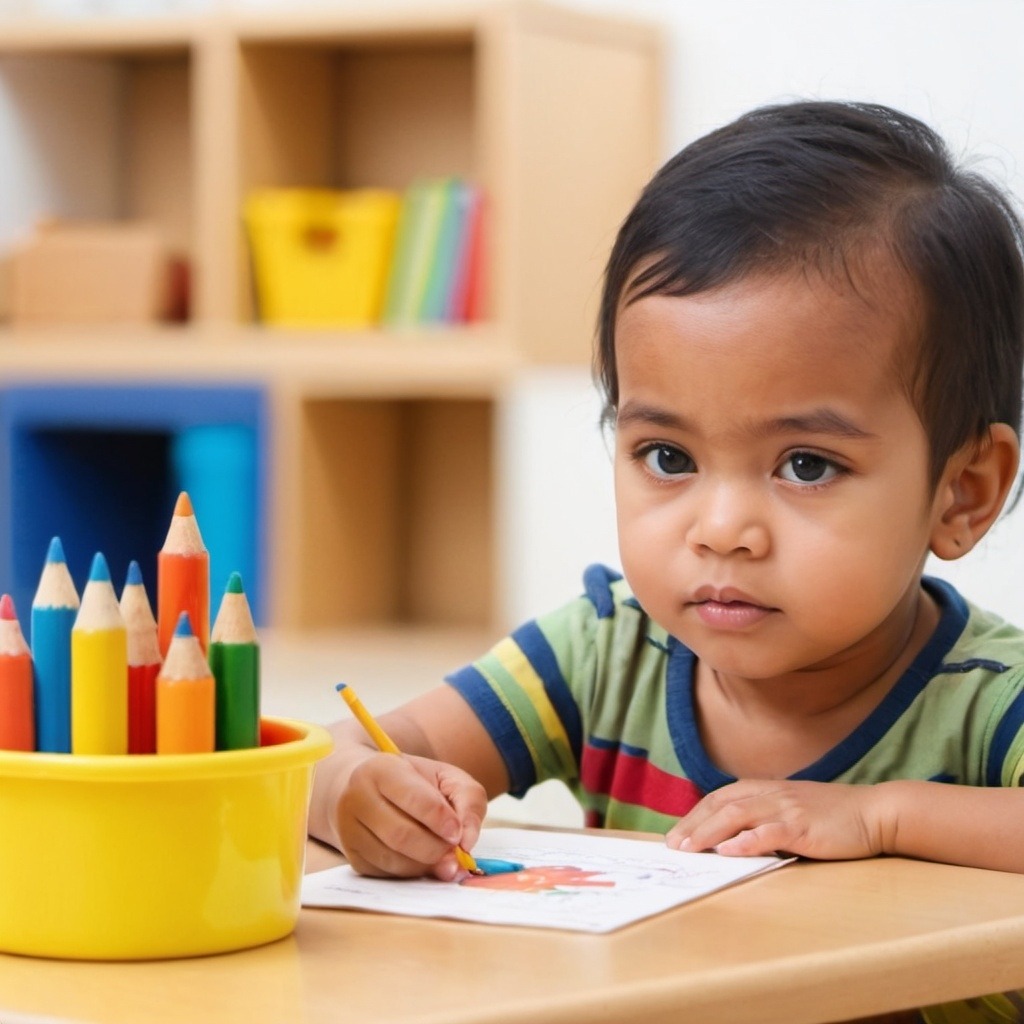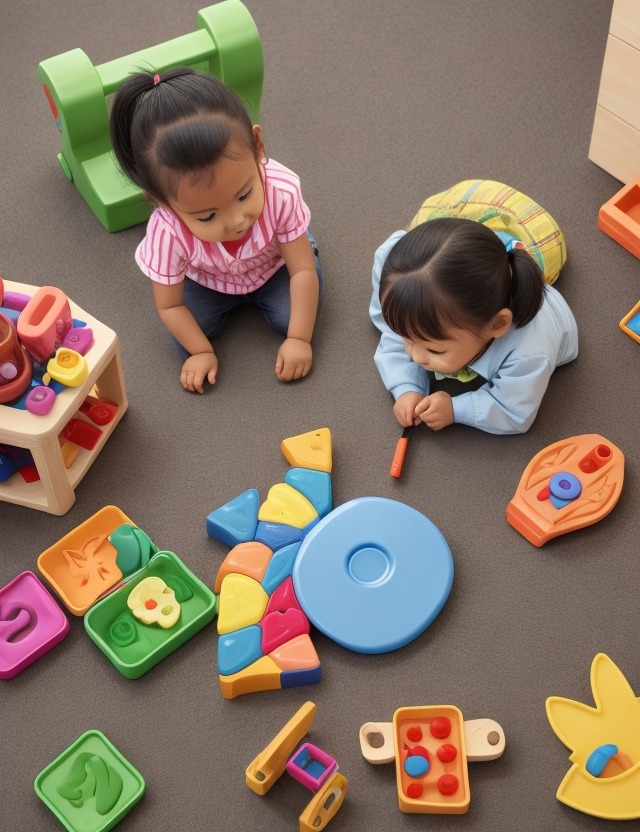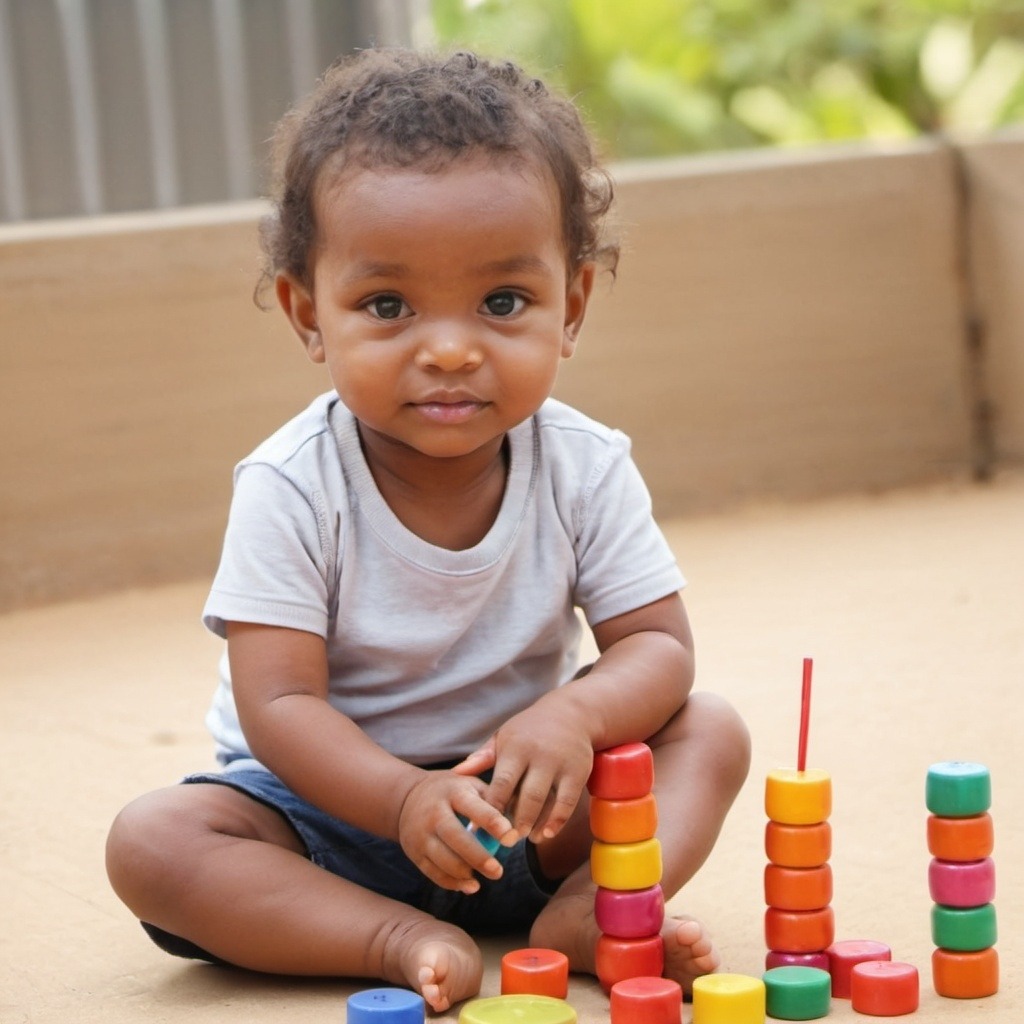
Introduction to Early Childhood Development
Definition and Importance
Early childhood development (ECD) is like the foundation of a house—solid, well-constructed, and crucial for the stability of everything that follows. It covers the period from birth to around eight years old, where children undergo rapid growth and transformation, both physically and mentally. Imagine this phase as the time when little minds are soaking up everything around them like sponges, laying down the neural pathways that will guide their future learning, behavior, and health. For more on the science behind ECD, check out this comprehensive guide on child development.
Key Developmental Stages
Understanding the key stages of development helps parents and caregivers know what to expect and how to support their little ones. First, there’s the sensorimotor stage (birth to 2 years), where children explore the world through their senses—think of it as the “everything goes in the mouth” phase. Next comes the preoperational stage (2 to 7 years), where imagination blossoms, and kids start to understand symbols and language. Finally, we have the concrete operational stage (7 to 11 years), where logical thinking kicks in, and they begin to grasp more complex concepts. These stages are like stepping stones, each one building on the last to help children reach their full potential. For a deep dive into these stages, check out this resource on developmental milestones.
The Role of Parents and Caregivers
Creating a Supportive Environment
Parents and caregivers are the superheroes in a child’s life, even without the capes! One of the most important roles they play is creating a supportive environment where children feel safe, loved, and free to express themselves. Think of it as the cozy nest where little birds learn to spread their wings. This environment includes not only physical space, like a child-friendly home filled with toys, books, and art supplies, but also emotional space, where a child knows they are valued and heard. For some handy tips on how to create this nurturing environment, check out this guide to building a positive home atmosphere.
Encouraging Exploration and Curiosity
Children are natural explorers, and encouraging their curiosity is like giving them a passport to the world. When parents and caregivers foster a child’s sense of wonder, they’re helping to develop critical thinking skills, creativity, and a lifelong love of learning. This could be as simple as taking nature walks and asking questions like, “Why do you think the sky is blue?” or “What do you think ants do all day?” It’s about giving them the tools and freedom to discover the world around them. If you’re looking for ways to inspire curiosity in your little one, this article on playful learning is packed with ideas to get you started.
Cognitive Development in Early Childhood
Language Acquisition
Language acquisition in early childhood is like watching a budding artist slowly bring a blank canvas to life. From the first coos and babbles to the magic moment when a child strings together their first sentence, it’s a fascinating journey. During these early years, children are absorbing words, sounds, and meanings at an astonishing rate, like little linguistic sponges. Parents can support this by talking, reading, and even singing to their child regularly. The more language they hear, the more they’ll understand and eventually use. If you’re curious about how to boost your child’s language skills, this resource on early language development offers plenty of practical advice.
Problem-Solving Skills
Problem-solving in early childhood is less about complex puzzles and more about everyday challenges—like figuring out how to stack blocks without them toppling over or deciding how to share toys with a friend. These small but significant moments help children develop critical thinking and resilience. Encouraging children to solve problems on their own (with a little guidance) helps them build confidence and independence. Offering them choices, asking open-ended questions, and letting them experiment are great ways to nurture these skills. For more tips on fostering problem-solving abilities, check out this article on encouraging independent thinking.
Encouraging Creative Thinking
Creative thinking is the secret sauce that turns everyday play into a learning adventure. It’s not just about arts and crafts; it’s about allowing children to think outside the box, whether that’s coming up with a new game or finding a unique solution to a problem. Creative thinking can be encouraged by providing open-ended toys like building blocks, art supplies, or even just letting them play in the dirt (yes, really!). The key is to give them the freedom to explore and express themselves without too many rules or restrictions. For a treasure trove of ideas on nurturing creativity, this guide to creative play is a great place to start.
Emotional and Social Development
Building Self-Esteem
Building self-esteem in young children is one of the most important aspects of emotional development. It’s about helping them see their own worth and feel confident in their abilities. Whether it’s through praise for a job well done or encouragement when they try something new, parents and caregivers play a crucial role in this process. The goal is to create a head start in their emotional growth, so they carry a strong sense of self into the school years and beyond.
Early childhood education settings, like preschool or child care, often focus on activities that promote self-esteem by encouraging children to take pride in their achievements and learn from their mistakes. For more on how to support your child’s self-esteem, explore this resource on confidence-building strategies.
Fostering Relationships with Peers
Fostering relationships with peers is essential for social development in early childhood. Young children learn valuable lessons about cooperation, empathy, and communication through play and interaction with others. In community settings, such as child care or early childhood education programs, children are given the chance to develop these skills in a structured environment. These settings often provide a safe space for children to navigate friendships, share, and resolve conflicts, which are key components of their social growth. For those interested in learning more about how to help their child build strong peer relationships, check out this guide on social development.
Understanding and Managing Emotions
Understanding and managing emotions is a critical part of emotional development for young children. This process helps them navigate their feelings in a healthy way, whether they’re dealing with joy, frustration, or fear. Early childhood education courses often emphasize emotional literacy, teaching children how to identify and express their emotions appropriately. In different settings, like child care or community programs, children can learn these skills through guided activities and role-playing. Parents and caregivers can reinforce these lessons at home by modeling emotional management and providing a supportive environment where children feel safe to express themselves. For more insights into helping children understand and manage their emotions, this article on emotional regulation is full of helpful tips.
Physical Development
Gross and Fine Motor Skills

When we talk about physical development in young children, gross and fine motor skills are at the forefront. Gross motor skills involve the larger movements children make with their arms, legs, and entire body—think running, jumping, and climbing. These skills are crucial for activities like playing sports or simply navigating their environment. Fine motor skills, on the other hand, are all about the smaller, more precise movements, such as picking up a pencil, buttoning a shirt, or stacking blocks. These skills are key for tasks that require hand-eye coordination and precision. Parents and caregivers can support the development of both by providing plenty of opportunities for active play and hands-on activities. If you’re interested in activities to promote these skills, check out this resource on motor skill development.
Importance of Nutrition and Exercise
Nutrition and exercise are the dynamic duo when it comes to physical development in early childhood. Proper nutrition fuels a child’s growth, providing the vitamins and minerals they need to develop strong bones, muscles, and a healthy brain. It’s important to ensure that young children get a balanced diet that includes fruits, vegetables, whole grains, and proteins.
Exercise, on the other hand, helps them build muscle strength, coordination, and cardiovascular health. Encouraging children to be active through play, sports, or even family outings helps set the stage for a healthy lifestyle. If you’re looking for tips on how to incorporate nutrition and exercise into your child’s daily routine, this guide to healthy living for kids is a great place to start.
Milestones to Watch For
Every child develops at their own pace, but there are some common physical milestones to watch for as they grow. From the first time they roll over, to taking those wobbly first steps, to mastering the art of cutting with scissors, these milestones are exciting markers of progress. It’s important for parents and caregivers to be aware of these developmental stages, so they can support their child’s growth and address any concerns early on. Pediatricians and early childhood education professionals can provide guidance on what to expect and how to encourage development at each stage. For a detailed look at developmental milestones, including when to expect them and what to do if there are delays, check out this milestones checklist.
The Impact of Early Education
Benefits of Preschool and Early Learning Programs
Early education programs, such as preschool, offer a treasure trove of benefits for young children. These programs provide a structured environment where kids can learn important social, emotional, and cognitive skills that set the stage for future success in school and life.
Preschool isn’t just about ABCs and 123s—it’s also about helping children develop independence, cooperation, and problem-solving skills. Research has shown that children who attend high-quality early learning programs are more likely to do well in school, graduate, and even succeed in their careers. For more insights into the long-term benefits of early education, take a look at this overview of preschool advantages.
Choosing the Right Program for Your Child
When it comes to choosing the right early education program for your child, the options can feel overwhelming. But fear not! The key is to look for a program that matches your child’s needs, interests, and temperament. Consider the program’s curriculum, teacher qualifications, and the overall environment. Is it nurturing? Does it encourage creativity and exploration? Visiting the program and observing the daily routine can also give you a good sense of whether it’s the right fit. Some parents prefer a more structured setting, while others might look for a program that emphasizes play-based learning. Whatever your preference, the goal is to find a place where your child feels happy, safe, and eager to learn. For tips on what to look for in a preschool, this guide to selecting an early learning program is a helpful resource.
The Role of Play in Learning
Play is often called the work of childhood, and for good reason. Through play, children learn to explore their world, develop critical thinking skills, and express themselves creatively. In early education, play is not just a break from learning—it’s a vital part of it. Whether it’s building a tower of blocks, pretending to be a superhero, or playing a game of tag, play helps children develop social skills, language, and even early math concepts. Many early learning programs incorporate play into their curriculum to create a balanced approach to education that nurtures the whole child. If you’re curious about the importance of play in early education, this article on learning through play offers a deep dive into why it’s so crucial for young children.
Challenges in Early Childhood Development
Addressing Developmental Delays
One of the challenges that can arise in early childhood development is addressing developmental delays. These delays can occur in areas such as speech, motor skills, or social interactions. The key is early detection and intervention, which can make a significant difference in a child’s development. Parents and caregivers should be aware of the typical milestones and seek advice if something seems amiss. Many early childhood education programs include screenings to help identify any potential delays early on. If a delay is detected, working with specialists like speech therapists or occupational therapists can help the child catch up. For more information on addressing developmental delays, this resource on early intervention is a great place to start.
Handling Behavioral Issues
Handling behavioral issues in young children can be tricky, but it’s a common part of early childhood development. Tantrums, defiance, and other challenging behaviors are often a child’s way of expressing frustration or testing boundaries. The important thing is to approach these behaviors with patience and consistency. Setting clear expectations, offering choices, and using positive reinforcement can go a long way in helping children learn to manage their behavior. It’s also helpful to understand the underlying causes of these behaviors—whether it’s a need for more attention, difficulty with transitions, or simply being overtired. Early childhood education settings often have strategies in place to help manage these behaviors in a supportive environment. For more tips on handling behavioral issues, check out this guide on positive discipline.
Supporting Children with Special Needs
Supporting children with special needs is another crucial aspect of early childhood development. Whether a child has a physical disability, developmental delay, or a learning difference, early support can have a profound impact on their ability to thrive. It’s important for parents, caregivers, and educators to work together to create an inclusive environment where these children can participate fully in all activities. This might involve adapting the physical space, using specialized teaching methods, or working with a team of specialists. Early childhood education programs that embrace inclusivity can provide the support and resources needed to help children with special needs reach their full potential. For guidance on supporting children with special needs, this resource on inclusive early childhood practices offers valuable insights.
Practical Tips for Parents
Encouraging Healthy Habits
Establishing healthy habits during the early childhood years is like giving your child a head start on a lifetime of well-being. Encouraging your little one to eat a balanced diet, get plenty of sleep, and stay active lays the foundation for a healthy lifestyle. Make mealtimes fun by involving your child in food preparation or turning healthy eating into a game. Regular outdoor playtime not only helps with physical development but also boosts their mood and energy levels. These habits, once ingrained, can stick with them all the way through to college and beyond. For more ideas on how to encourage healthy habits in young children, check out this guide to establishing healthy routines.
Reading and Learning Activities at Home
The home is often the first classroom, and parents are the first teachers. Incorporating reading and learning activities into daily life can have a huge impact on your child’s early education.
Reading together not only boosts language acquisition but also strengthens the bond between you and your child. Try making storytime a daily routine, and don’t be afraid to get creative—use different voices for characters or ask your child to predict what happens next in the story.
Beyond books, simple learning activities like counting objects, exploring nature, or even cooking together can turn everyday moments into educational experiences. These early learning habits set the stage for academic success all the way through college. For more tips on how to create a rich learning environment at home, this resource on early literacy and learning is packed with practical ideas.
The Importance of Routine and Structure
Routine and structure are like the safety rails that guide young children through their day. A consistent daily routine helps children feel secure, understand what’s expected of them, and develop self-discipline. Whether it’s a morning routine, a bedtime ritual, or scheduled playtime, routines help children navigate the world with confidence. Structure doesn’t mean rigidity; it’s about creating a predictable environment where your child knows what comes next. This can be particularly helpful as they transition into formal education settings and eventually into college life, where time management becomes crucial. For parents looking to establish or refine their family’s routine, this guide on creating a structured home environment offers valuable insights.
